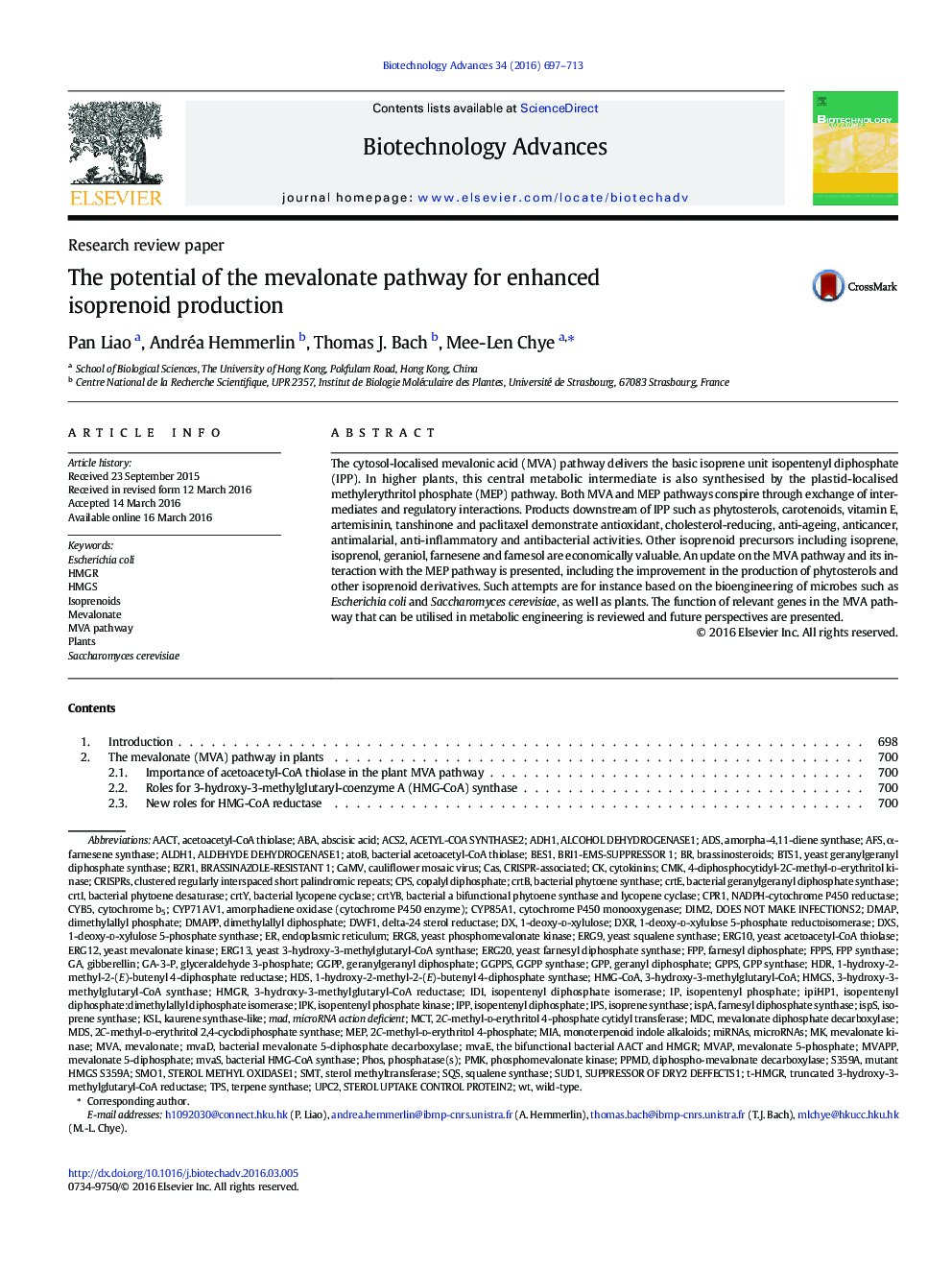| Article ID | Journal | Published Year | Pages | File Type |
|---|---|---|---|---|
| 6451216 | Biotechnology Advances | 2016 | 17 Pages |
The cytosol-localised mevalonic acid (MVA) pathway delivers the basic isoprene unit isopentenyl diphosphate (IPP). In higher plants, this central metabolic intermediate is also synthesised by the plastid-localised methylerythritol phosphate (MEP) pathway. Both MVA and MEP pathways conspire through exchange of intermediates and regulatory interactions. Products downstream of IPP such as phytosterols, carotenoids, vitamin E, artemisinin, tanshinone and paclitaxel demonstrate antioxidant, cholesterol-reducing, anti-ageing, anticancer, antimalarial, anti-inflammatory and antibacterial activities. Other isoprenoid precursors including isoprene, isoprenol, geraniol, farnesene and farnesol are economically valuable. An update on the MVA pathway and its interaction with the MEP pathway is presented, including the improvement in the production of phytosterols and other isoprenoid derivatives. Such attempts are for instance based on the bioengineering of microbes such as Escherichia coli and Saccharomyces cerevisiae, as well as plants. The function of relevant genes in the MVA pathway that can be utilised in metabolic engineering is reviewed and future perspectives are presented.
